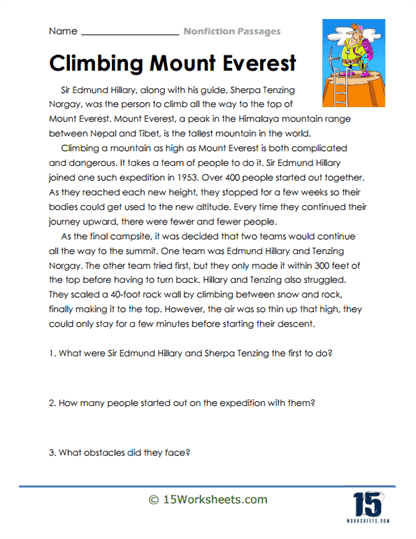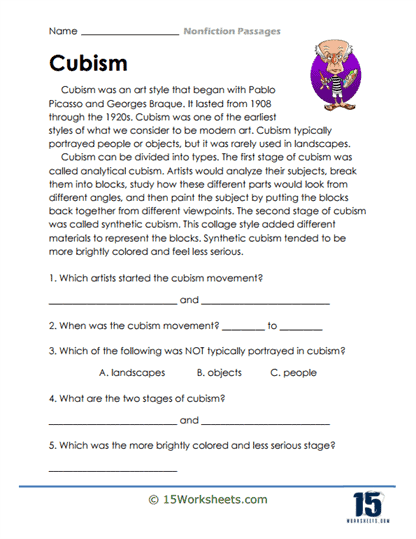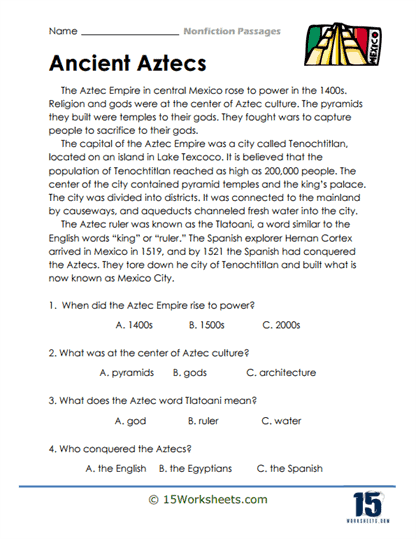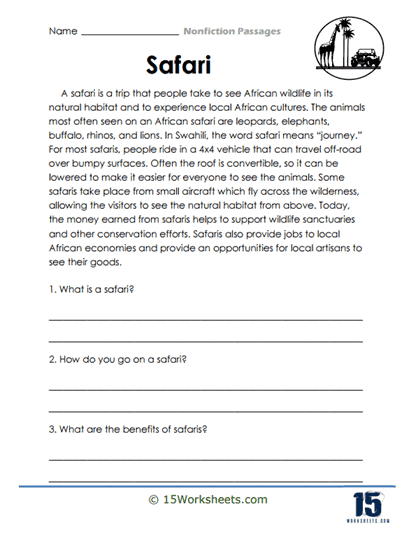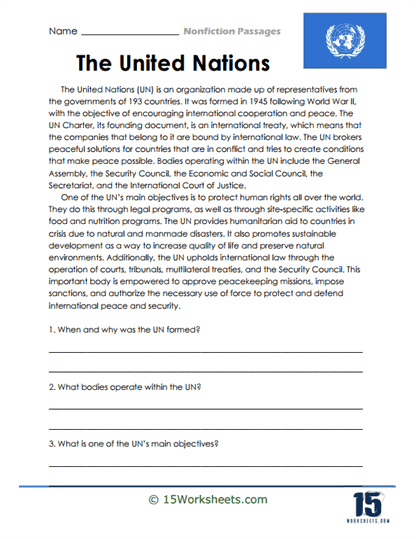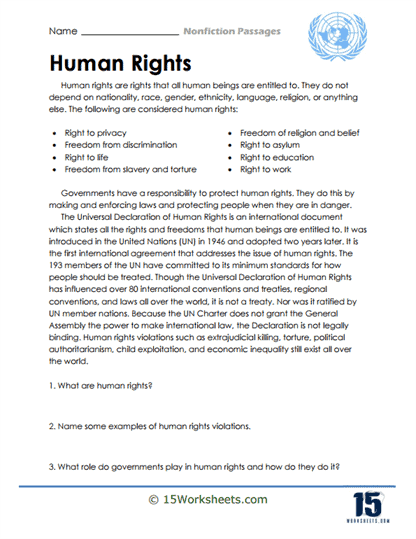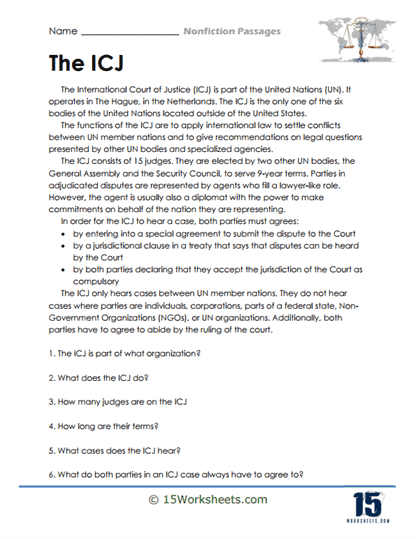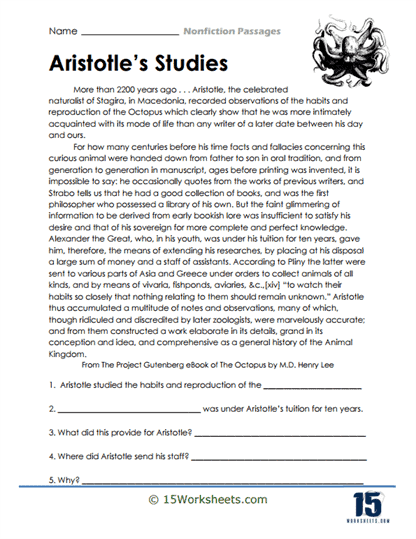Nonfiction Passages Worksheets
About These 15 Worksheets
Nonfiction passage worksheets are used primarily in reading and language arts curricula to develop students’ abilities in understanding, analyzing, and responding to nonfiction texts. These texts can range from biographies and historical accounts to scientific reports and journalistic articles. This detailed exploration will cover the nature of nonfiction passage worksheets, the variety of exercises they include, and the ways in which they enhance students’ reading comprehension and language skills.
Nonfiction passage worksheets are indispensable in the educational journey of students. They not only bolster reading comprehension and critical thinking but also prepare students for the rigors of academic and professional writing. The skills developed through these worksheets transcend the classroom, equipping students with the ability to navigate the vast landscape of information in the modern world. Through structured and varied exercises, nonfiction passage worksheets offer a comprehensive approach to understanding real-world texts, fostering a well-rounded, informed, and critically engaged mindset.
Nonfiction passage worksheets focus on real-world topics and factual information. This genre of writing is grounded in truth and often aims to inform, explain, or persuade. The worksheets are designed to help students navigate the complexities of nonfiction texts, which can include dense information, technical vocabulary, and various structures.
Types of Exercises
Comprehension Questions – These are basic questions following the passage that test the students’ understanding of the main ideas, details, and themes. They may include ‘right there’ questions (answers found directly in the text) and ‘think and search’ questions (answers inferred from the text).
Vocabulary Development – Exercises that focus on the specific vocabulary used in the passage. These can include matching words to definitions, using context clues to determine meanings, and creating sentences with new vocabulary words.
Summarization Activities – Students are asked to summarize the main points of the passage in their own words. This activity enhances their ability to identify key ideas and condense information effectively.
Analytical Questions – These questions require higher-order thinking skills, asking students to analyze the author’s purpose, identify biases or assumptions, and evaluate the effectiveness of the argument or presentation.
Inference Making – Students make inferences based on the information provided in the text, developing critical thinking and deductive reasoning skills.
Text Structure Analysis – This involves identifying and understanding the structure of the text (e.g., cause and effect, compare and contrast, problem and solution), which is crucial for comprehending complex nonfiction materials.
Fact vs. Opinion – Exercises where students distinguish between factual statements and opinions expressed in the text, essential for critical reading and thinking.
Discussion Prompts – Questions or statements designed to stimulate discussion, either in written form or in group settings. These can relate to the content of the passage or its broader implications.
Research and Extension Activities – Tasks that encourage students to conduct further research on topics related to the passage, deepening their understanding and curiosity about the subject matter.
Graphic Organizers – Tools like charts, maps, or diagrams that help students organize and visualize the information from the passage.
Benefits of Practicing with Nonfiction Passage Worksheets
Improved Reading Comprehension – Regular practice helps students understand complex texts, identify main ideas and details, and follow logical arguments or explanations.
Enhanced Critical Thinking – Analyzing nonfiction texts encourages students to think critically about the content, discern biases, and evaluate the strength of evidence or arguments.
Expanded Vocabulary and Language Skills – Exposure to diverse topics and specialized vocabulary in nonfiction texts broadens students’ linguistic range, aiding both comprehension and expression.
Better Information Retention – Engaging with factual content through various exercises enhances memory retention and recall.
Development of Research Skills – Extension activities encourage independent research, fostering skills in information gathering and evaluation.
Preparation for Standardized Tests – Many standardized tests include nonfiction passages; familiarity with these types of texts can improve test performance.
Real-World Application – Nonfiction texts often deal with real-world issues and knowledge, making their comprehension directly applicable to students’ lives and future educational pursuits.
Enhanced Writing Skills – Understanding the structure and style of nonfiction texts can improve students’ own writing, especially in academic and professional contexts.
Cultivation of Inquisitiveness – Exposure to a range of topics can spark curiosity and lead to a lifelong love of learning.
Improved Discussion and Debate Skills – Discussion prompts and analytical questions enhance students’ ability to articulate their thoughts and engage in meaningful conversations.







